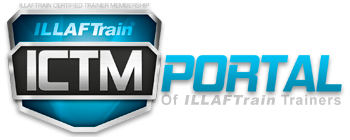Certified Performance Consultant
Course id: TOC
Duration: 6 Days
introduction
This program focuses on the skills and techniques necessary for consultants. Moreover, the program presents the consulting skills, behaviors and processes relevant to effective internal consultancy, including the actions that must be adopted to achieve the expected results, creating the objectives, managing the expectations and guiding the clients through this process, in addition to building credibility to affect the decision-making process and overcome the obstacles and resistance. The program also includes tests to find a way to face difficult situations, and the need to adopt effective strategies to handle complex administrative cases.
Prerequisites
No
Audience
This program is for staffs in the human resources department and the consultancy training, who are asked to act in an advisory capacity, either with the clients and external clients, or with the companies in which they work. It is also for new professionals in an internal consulting role or those who want to prepare to take over this role in the future, in addition to the performance professionals and external consultants who want to perfect their own consulting skills.
Objectives
At the end of this Training Program each Trainee will be able to:
- Recognize Factors which make the Consultant a Great Person
- Discover Challenges the Consultant will Face
- Determine the Consulting field to Specialize in
- Recognize the most Lucrative fields of Consulting
- Decide how much he wants to make annually
- Determine the Consultancy Skills the Consultant needs
- Evaluate your Consulting Efficiency
- Determine Consultant Skills and Knowledges
- Recognize Consulting Models
- Use The ITOT’s-D Consulting Model™
- Compare between 5 Consulting Models
- Recognize the difference between Internal & External Consultations
- Determine the difference between Training and Performance Consulting
- Overcome the Obstacles
- Determine who the Client is
- Determine when to start
- Determine how to Build and Sustain Rapport with Client
- Determine if the Client is ready or not
- Ask effective Questions
- Plan for Contract Meeting to decide starting point with Client
- Recognize various types of Pricing Structure
- Think about how to price in order to bring Value to work
- Create a Pricing Plan
- Recognize Data Collection Standards
- Choose suitable Data Collection Method for your project
- Discuss reasons why Data is important
- Determine Pros & Cons of Data Collection Methods
- Set up Exploratory Meeting with Client
- Make an effective Interview
- Determine the Factors influencing Work Performance
- Apply Participatory Analysis Techniques
- Conduct an Affective Meeting to Evaluate Feedback
- Deal with Client Resistance and other Difficult Behaviors
- Conduct Commitment Meeting to determine next Steps
- Design and apply Solution in effective way
- Determine Goals & Strategies
- Progress Monitoring
- Apply Final Check
- Recognize Participatory Analysis Techniques
- Determine Solving Obstacles Strategies & Tactics
- Conduct Debriefing Meeting
- Evaluate Consulting Services
- Evaluate Success
- Create Plan to invest in "lessons learned"
- Terminate Contract in Proper Way
- Create Important & Distinctive Strategic Plan
- Determine Top Ten Time-Wasting mistakes
- Understand 4 Strategies to Avoid symptoms of consultancy building syndrome
- Apply Proper Physical Health Plan
- Determine and work on Opportunities
- Determine the 5 Steps to deal with Client Challenges
Content
Basics
Assessing the current strengths and identifying the skills requiring improvement.
Distinguishing between the many roles of internal consultants and the benefits of each.
A practical model to manage the consulting projects.
Practicing consulting specializations.
Personal negotiation strategy.
Creating the appropriate first impression.
Seeing the other point of view.
Understanding the dynamics of the group.
Presenting positive reactions.
Consultant
The role of consultant and the scenarios surrounding him.
The complex role of the consultant and how to determine it.
The restrictions surrounding the consultant while performing his role.
The orders required to be met by the consultant, and are they always real?
The consultant’s options to perform his role efficiently.
The political game and the extent of its impact on the consultant.
The relations with the employers.
Communication Skills
Personal communication skills.
Assessing personal skills in communication and appreciating the significant importance of communication.
Self-assessment of personal communication skills.
Reading and using body language in communication.
Using the proper techniques in communication.
How to use the appropriate model and prepare the information to be presented.
Ensuring the presentation’s goal is achieved.
Choosing and using the presentation’s goal.
Group Discussions
Preparing the group discussions.
Participation of all parties.
Controlling the discussion through questions.
Summary tools.
Roles’ performance in group discussion.
Importance of first impressions.
Self-image and the projected image compared to the visible image.
Style and approach.
Dealing and different behaviors, the positive and negative ones.
Estimating the contribution you provide to your clients’ activities.
Approach of Dr. Stephen Covey for win – win consulting.
Final summary and planning to act.
Diagnosing Performance Problems
Sorting matters according to what is befitting of training and what is not with the performance analysis.
Reviewing other obstacles that may affect performance.
Performing an analysis for objectives.
Developing the performance plan.
Using the reference performance plan.
Determining how to include management problems within the analysis.
Working with the Executive Management Board
Building credibility and increasing influence.
Examining the influence style and the inventory incidents’ consultancy.
Identifying the mechanism to meet the institution’s needs.
Identifying steps to increase influence in cooperation with others.
Strategic Planning for the Consulting Experts’ Performance
Formulating the plan collectively.
Determining how to promote the consulting services to prospective clients.
Explaining and assessing the performance consultancy’s levels.
Completing the study of the strategic planning case.
Providing the real world tools, functional objectives, models and checklists that can be used directly upon professional preparation.
Using success strategies, including working within the organizational limits and providing feedback for senior leaders.
Implementing Performance Consulting
Identifying strategies and tactics.
Accomplishing the performance consulting inventory.
Summarizing and accomplishing your own work plan.

